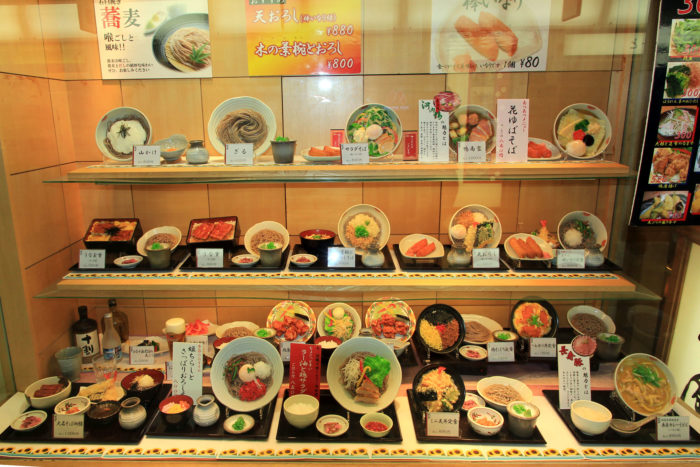
Last Updated: 18 Jul 2020 Relationship building leads to succcessful sales in Japan
In the U.S., one of our most popular seminars is “Working Effectively with Japanese,” where Americans learn intercultural skills proven to build productive working relationships. We do much of this training in-house, but sometimes we hold open seminars in various parts of the US. At this particular open session, most of the participants came from automotive suppliers, so we put some emphasis on information useful to them, such as how to provide the top 10 things Japanese customers are looking for in their suppliers.
After the session one of the participants, a salesman, said the relationship material was really helpful and that he would be interested in another session. “What I really want to know is how to do cold calling with the Japanese. I want to know how to call up and make the pitch for a sale.”
In my experience, there is no such thing as cold calling when selling to the Japanese. A relationship needs to be there, or better yet, a network of relationships, before a sale is made. Here are some ideas for turning a “cold call” into a “warm call” before approaching a Japanese customer.
High context and low context
Cross-cultural researcher Edward Hall used the terms “high context” and “low context” to describe cultural differences between societies. In high context cultures, people need to take time to develop relationships and get to know one another before doing business. People prefer to get to know someone new on the basis of an introduction from someone they already know. Japan is an example of a high context culture. In low context cultures, business is conducted based on the merits of the proposition at hand rather than through relationships. People are comfortable meeting new people directly, as individuals. The US is an example of a relatively low context culture.
Cold calling is low context
At its most basic, cold calling is approaching a person with whom you have no relationship by phone or email, pitching your product and asking for their business. It is very low context to assume that the other person would be open to such a sales pitch. In the US, people who are unwilling to make cold calls would not be considered sales professionals and would not get hired. It works by the numbers. Call 100 people and 50 calls will go to voice mail. Talk to 50 people and get 40 turn-downs. Of the remaining 10, etc, etc. In the US people eventually do make sales this way, or else they would not continue doing it. In Japan, this type of low context, by-the-numbers selling does not work.
High context selling—developing relationships
In Japan, salespeople work hard at forming and maintaining connections that will help them get meetings with potential customers—university friends, work relationships and myriad connections throughout companies in their specific industry. In order to keep up with news of upcoming projects and potential needs for their company’s products, they spend a lot of time socializing in the evenings with these contacts. Then if they target Company A, Division B for their sales development, they can find someone in their network who knows someone who knows someone they should talk to. This seems very time-consuming, doesn’t it? On the other hand, making hundreds of calls to find one good prospect also seems unproductive.
What you can do—research
I am assuming that you already know which Japanese company or companies you want to target. If possible, target companies who have offices in your local area, since face to face interaction and quick responsiveness count for a lot. Research your company’s website, financial results and recent news (Google Alerts is a free tool that will constantly search the Web and blogs for you). I recommend also having a close read of the history of this company in Japan. This helps you learn something of the company culture. Some companies date from Japan’s feudal ages (I can think of one that makes MRI machines!) Others made the transition from textiles to high tech. Some were founded by charismatic geniuses. It is important to know these things.
Find an introduction
For high context selling, introductions are indispensible. They give you credibility as you begin the process of developing a relationship with your potential customer. You may already know someone at their company. Or maybe someone you know knows someone. Social networking sites like LinkedIn might reveal such a connection. Suppose you still don’t know anyone. This is where it is good to be active in networking or business organizations. In the US, anyone involved in sales to the Japanese should belong to their local Japan-America Society and/or Japanese Chamber of Commerce, and attend their events. Treat every interaction with these groups very carefully. You never know who your next contact or customer or even employer will be.
The initial contact
Once you have spoken with your contact, ask their advice on the best way to approach the Japanese company. In some cases it might be sufficient to put the contact’s name in the subject line of your email, as in “XXXXX Services—referred by xxx.” That would be a considerable step above cold calling. Or, the contact might make a phone call on your behalf, to prepare the ground for your call.
The warmest end of warm calling is for your contact to be present to make the face to face introduction. You might ask—Why would anyone want to do this for me? The fact is, in Japan third-party introductions are done all the time. Your meeting could be an informal breakfast, coffee or happy hour, that you would pay for. When you meet in person, this isn’t time to jump right into a sales pitch. This is the time for you to learn you have in common and find an opportunity to click. If it seems natural to talk about business, then you ask what is going on at the Japanese company as it relates to your product or service.
The pitch
Japanese are very suspicious of sales talk that seems canned or one-size-fits-all. Once you have asked about their situation and needs, then you can lead with your experiences with their particular industry or product, as well as specific cases where you solved problems similar to theirs. Things that will impress the Japanese about your company: number of years in business (the longer the better because it shows stability and long-term commitment), ISO and other certifications, good client list, and of course, you! They will appreciate having a customer contact with whom they feel comfortable doing business. High-context selling may seem time-consuming, but it builds a foundation for a harmonious long-term relationship.
Related articles
Cultural differences and customer experience
I was finally able to visit Japan again at the end of 2023, after a four and a half year gap. I was
Oh no, not another -hara! (harassment)
When I saw an article in the Nikkei Business magazine discussing kasuhara (customer harassment) in J
Top ten expectations of Japanese customers
Customer service is a highly developed art form in Japan. As foreign firms become increasingly acti




